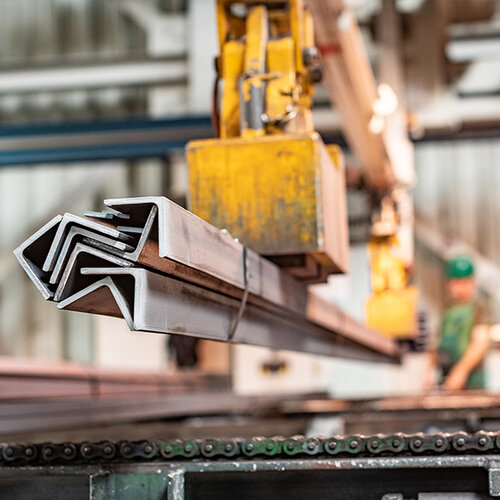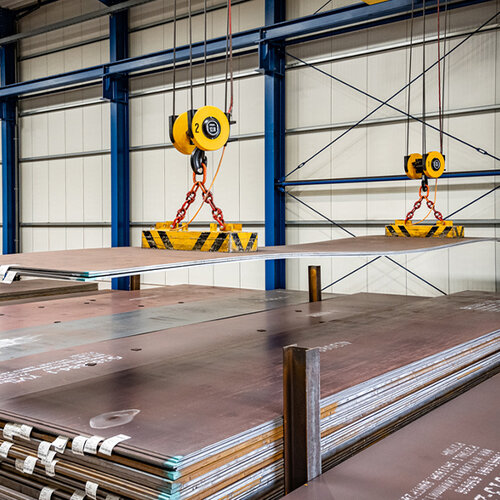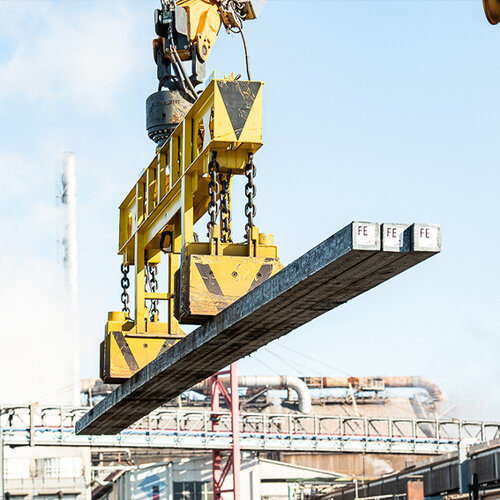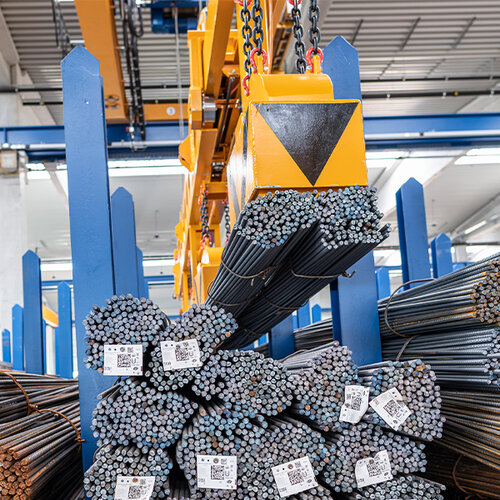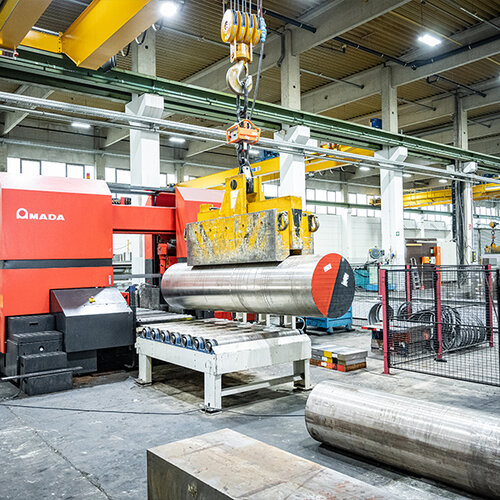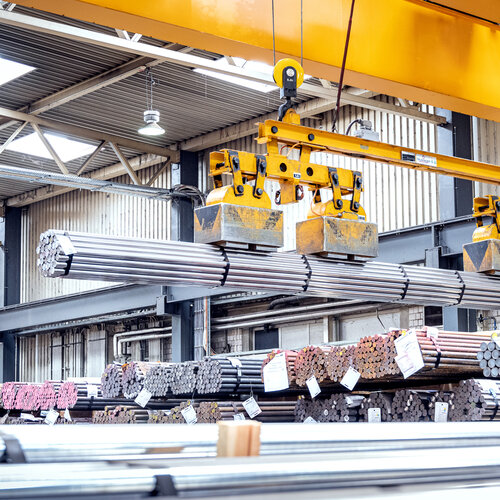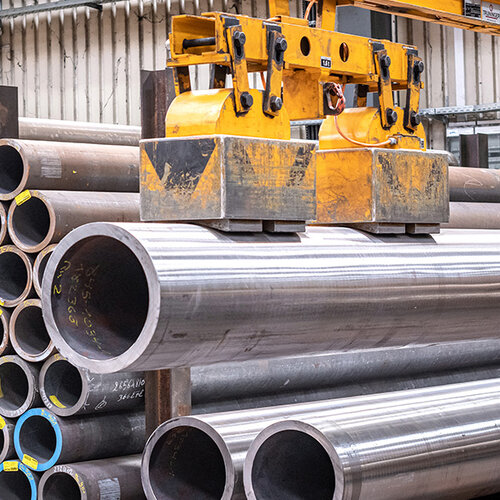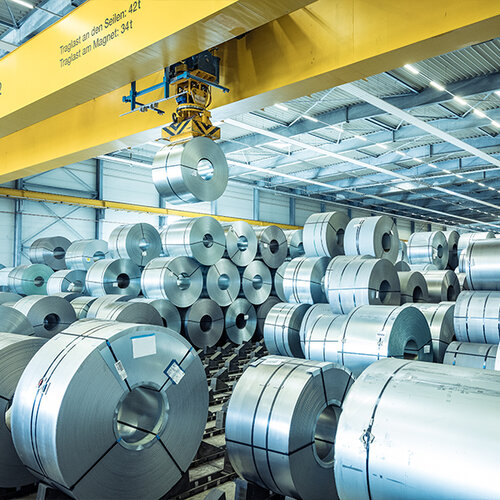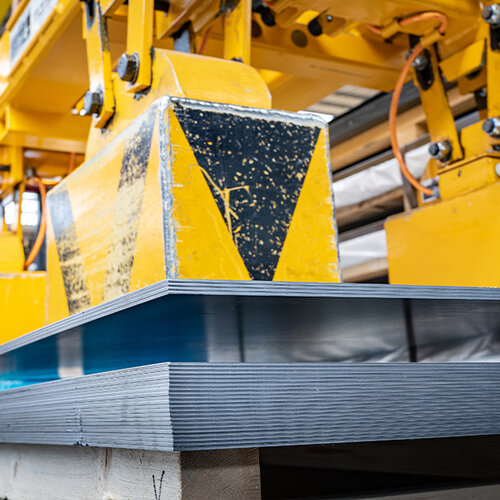
Beams and profiles
Whether in the production, storage, or the logistics of beams and profiles: The efficient use of the space available, flexibility to pick a wide range of material and speedy handling are typical requirements for lifting magnet systems, especially when used to handle individual beams, profiles and entire bundles all together.
Applications
TRUNINGER offers solutions for the efficient handling of beams and profiles.
Transporting beam bundles in steel mills
A wide range of applications
TRUNINGER magnet systems are used for many different transport task in the process of beam and profile production.
Transporting layers of hot beam blanks up to 600°C using TRUNINGER high temperature rated magnets (see figure 1) is one example.

Figure 1: Transporting layers of hot semi-finished beams
Quick and efficient handling of beam bundles
Immediately after production of beams and profiles, magnet systems can again be used for various material flow tasks in the steel mill. Typical application are internal handling processes from one production line to another. Robust spreader beams and durable magnet designs are key features of magnet systems in steel mills.
At the end of the production, the beam bundles need to be moved quickly and safely into the dispatch area or loading zone in order to keep up with the continual flow of finished products.
TRUNINGER design features
The design of the magnet spreader beams is adapted to the lengths of the material and the nature of the bundles. Components used here include fixed spreader beams with travelling magnets (see figure 2), two individual spreader beams or an active telescope (see figure 3).

Figure 2: Magnet spreader beam used to move beam bundles to the dispatch storage area.
The magnet controller enables the magnets to be moved automatically and to be positioned correctly according to different material lengths. This minimises any load deflection and guarantees safe transport.
Magnets that can be rotated or moved to the side allow flexible adaptation to bundle width.

Figure 3: Dispatching and loading three bundles of beams in a single hoisting.
The magnets are fitted with adjustable poles that can adapt to the different contours of the material being carried (see figure 4).

Figure 4: Finger poles adapt automatically to the contours of the two H-profile bundles.
Transport of beam and profile bundles
Quality management and safety
Logistics between steel mills and steel distribution centres are high volume rather then single quantities.
Accordingly, steel is often traded in bundles or packs. A large number of different products with varying lengths, sizes and weights calls for a lifting and transport system suitable for universal use. The lifting system must be able to carry heavy loads safely without affecting the quality of the material in any way.
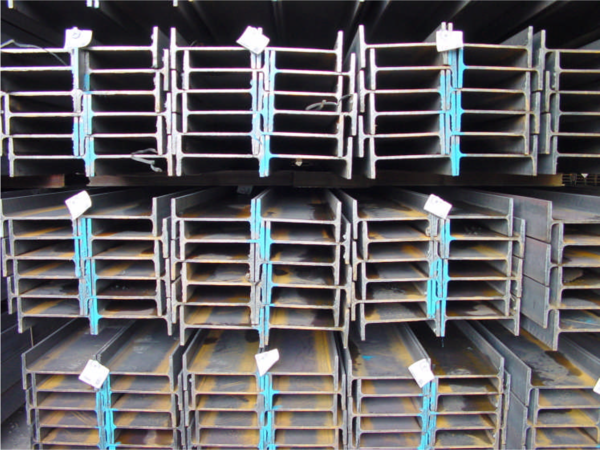
Figure 1: Typical storage of beam bundles.
Magnet systems for beam bundles
An alternative to mechanical lifting gear, such as belts and chains, is the use of specialized magnet lifting equipment to handle the entire beam bundle.

Figure 2: Magnetic transport of an H-shaped beam bundles.
Beam bundles up to 24 m long
TRUNINGER designs and manufactures special magnetic systems for the handling of all standard beam and profile bundle lengths.
- The design of the magnet spreader beams is adapted to the lengths of the material and the nature of the bundles. Solutions used here include fixed spreader beams with travelling magnets, two independent spreader beams (see figure 3) and, quite frequently, an active telescope (see figure 2).
- The magnet control system enables the magnets to be moved automatically and thus to be positioned correctly to suit different material lengths. This minimises any load sag and guarantees safe material transport.
- Magnets that can be slewed or moved to the side to adapt to different bundle widths.
- Automatic quick change between magnets for bundle and single beam transport
- Specially developed magnets with a deep magnetic field guarantee safe transport of the beam bundles and relieve the strain on the steel strapping.
- The magnets are fitted with variable contour poles that can adapt to the different shapes of the items being carried (see figure 4).
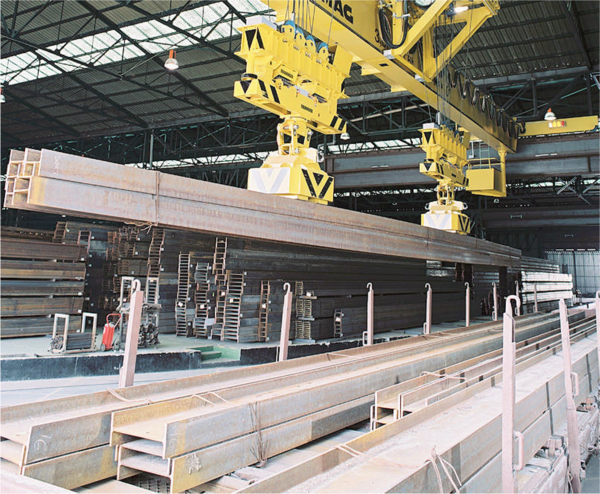
Figure 3: Two independent spreader beams with quick change systems unloading a railway wagon.
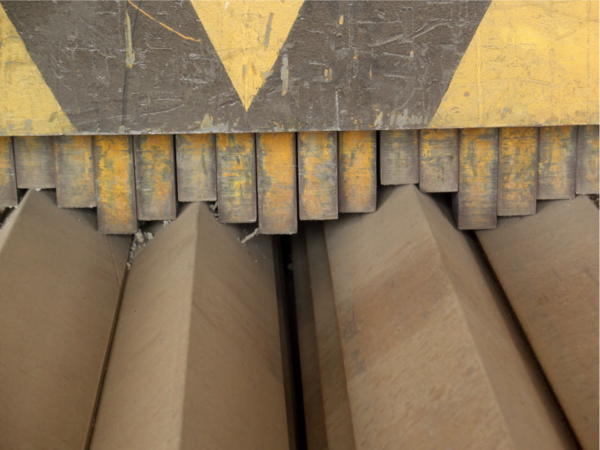
Figure 4: Finger poles adapt to the shape of a bundle of angled sections.
Handling of single beams and profiles
Gaining space cuts costs
Storage space costs money. It is therefore important to make optimal use out of the available space.
The magnets used in warehouses for beams are particularly slim design, allowing handling even in narrow gaps between stacked material. Neither empty space nor aisles are necessary between stacks of material.
When using magnet systems, wooden spacers are also a thing of the past: Given a sound surface, large profiles can be stacked one on top of each other without any spacers in between. It is also no longer necessary to limit stack heights to that of a man when using magnet systems.
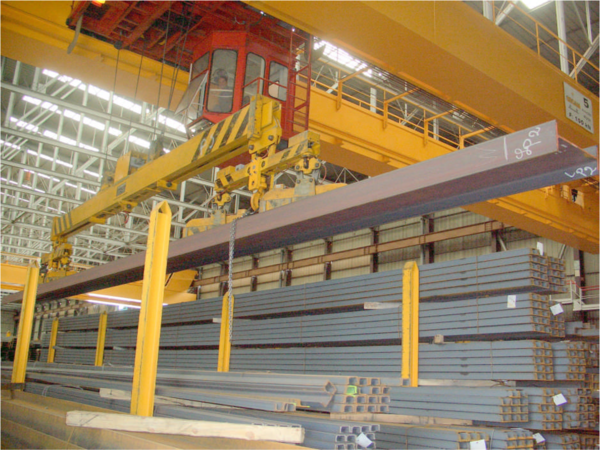
Figure 1: High storage density with TRUNINGER lifting magnet system.
Your benefit
|
Fast and safe material handling
A properly designed magnet system enables fast and safe access in all warehouse areas be it for material reception, storage or dispatch area. By using a TRUNINGER magnet system you save not only space, but lots of time as well. Magnets, when properly guided, allow the load to be approached quickly, picked and lifted-up within seconds. The same applies when placing the load in the stock or processing area.
It is not possible to keep beams in a stable position using a single crane hook. It takes two hooks to keep the magnets oriented in parallel to the lifted material. Two hook cranes are thus a prerequisite for safe and efficient one-man operation!

Figure 2: Passive telescope during transport of a hollow section layer.
A simple and low-cost solution for cranes with two independent trolleys is the use of two magnet groups hanging directly in the crane hooks and kept in line by a passive telescope (see figure 2).
Two hoists, each equipped with two rope lines and hooks, offer a particularly lightweight and flexible solution to handle long beams. The distance between the two independently controllable magnet groups can thus be adapted to a wide range of beam lengths. Sway of the crane is eliminated applying a V-shape rope guidance.

Figure 3: Two individual spreader beams with anti-sway V-shape guidance for lifting of narrow beams.
Your benefit
|

Figure 4: Cost-efficient compact storage of long hollow sections using a magnet system.












